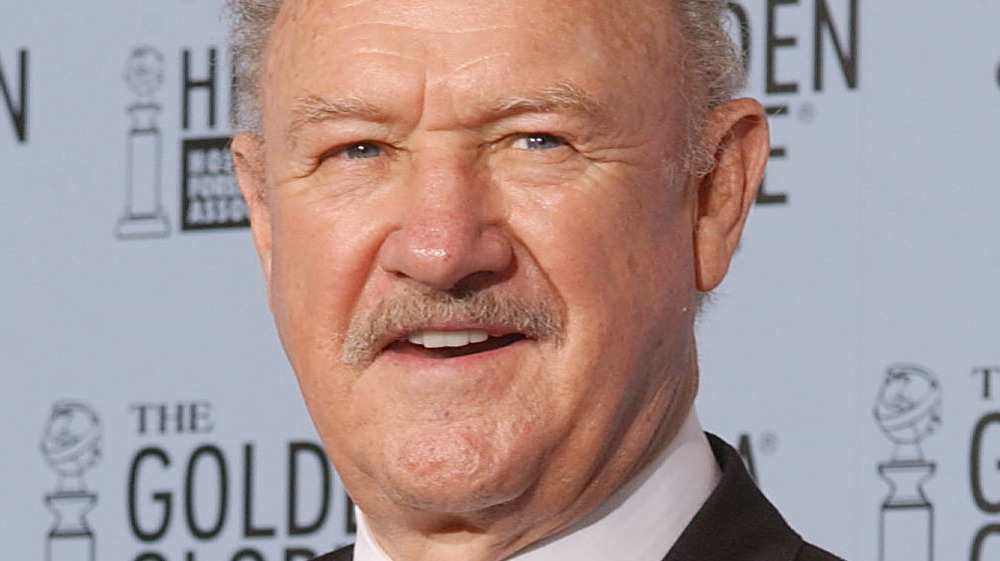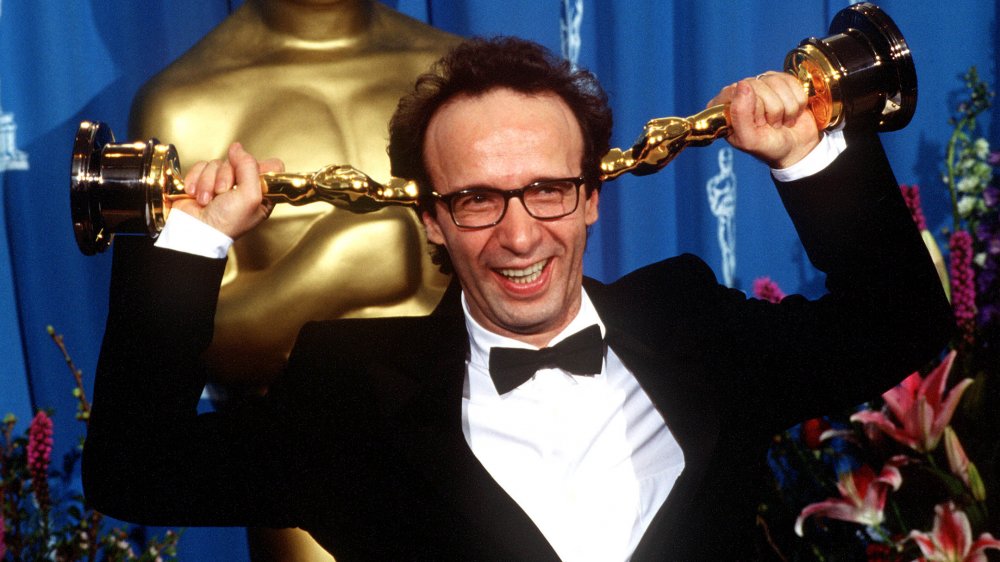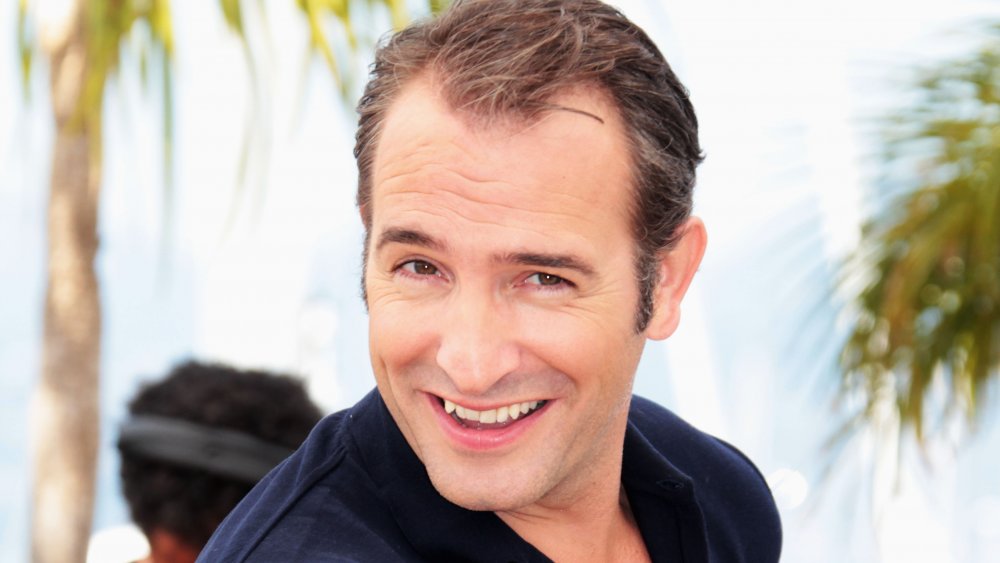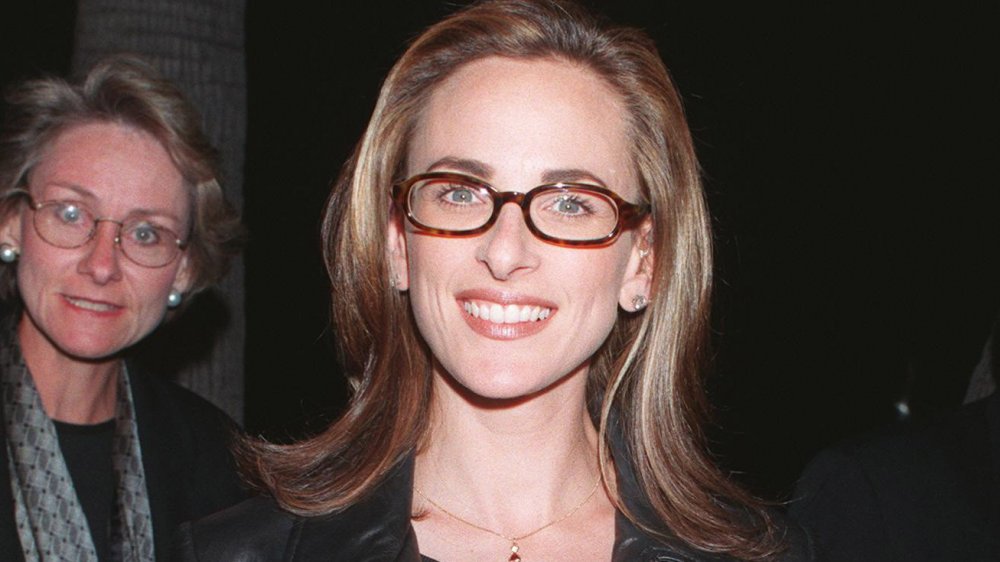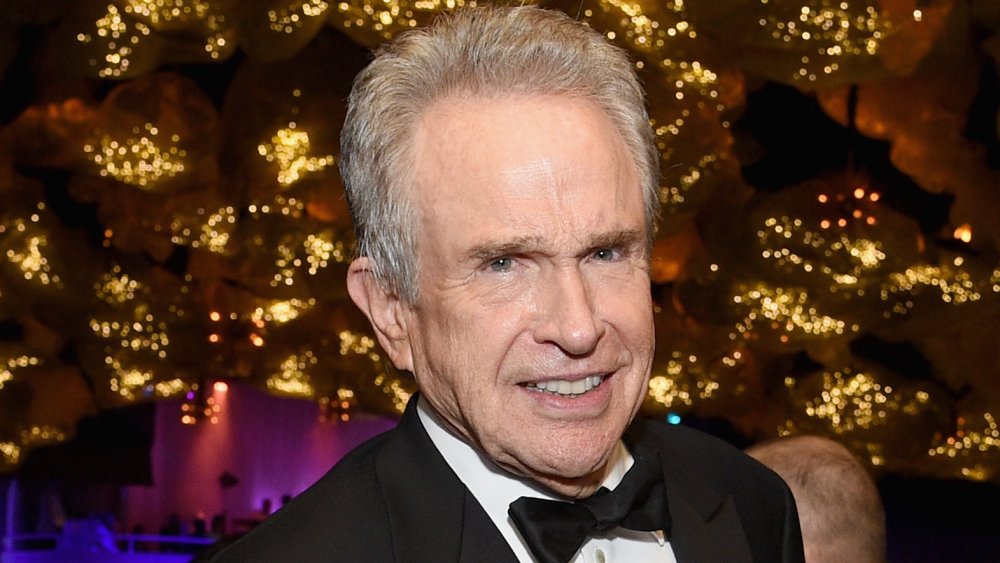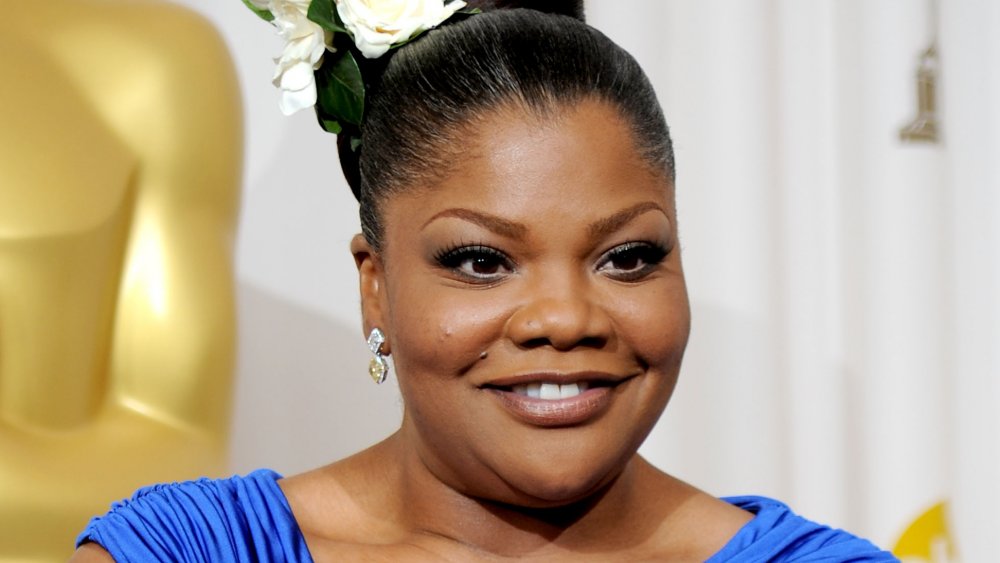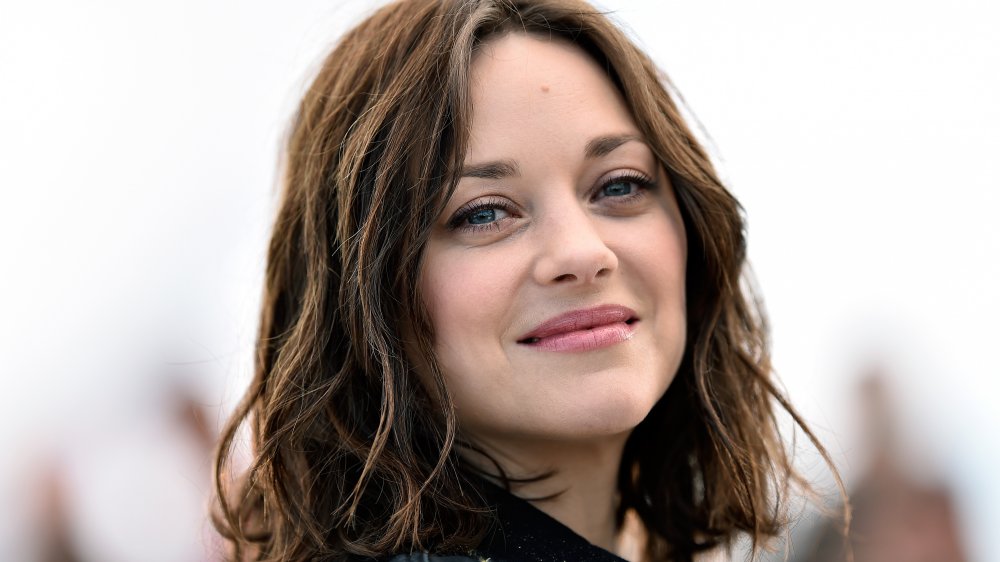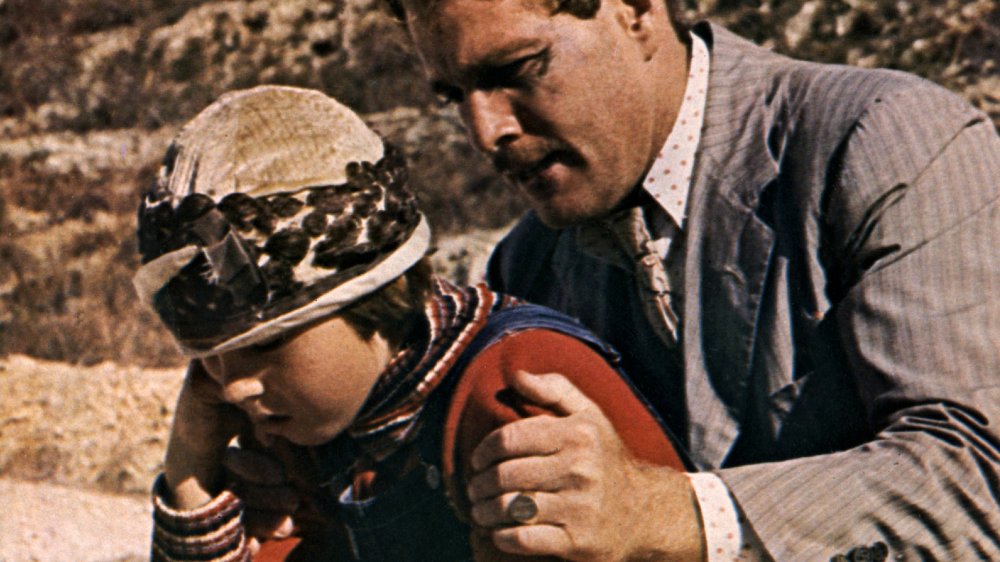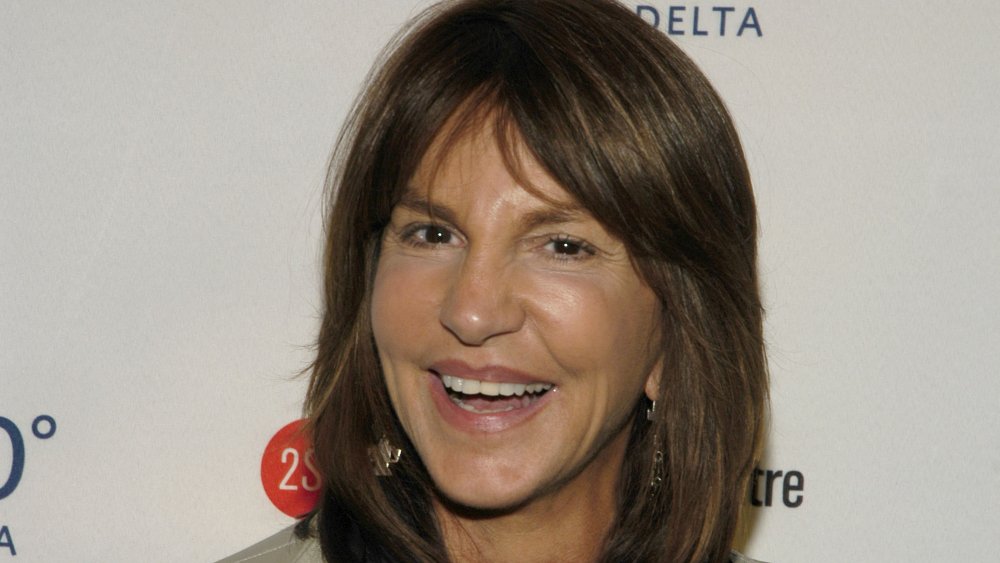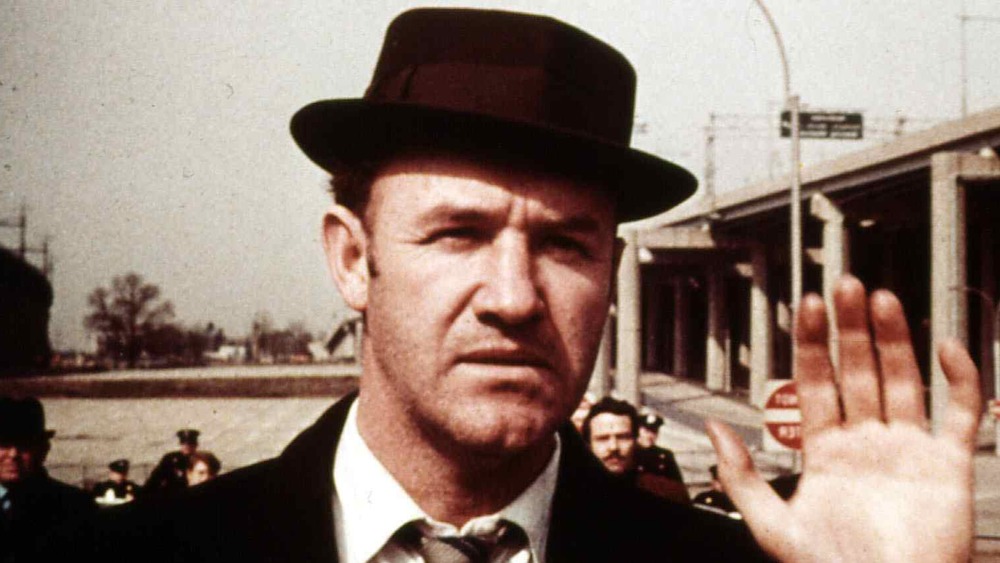Oscar Winners You Don't Hear From Anymore
A career as a successful actor brings some cushy fringe benefits. Making millions of dollars to play make-believe and dress-up is nice work if you can get it, and the love and adoration of the world isn't so bad, either. But so many actors start out in the field because it's an artistic pursuit or a calling, and nearly all of them, at one point or another, have imagined themselves up on the stage at that Hollywood theater during the Academy Awards, accepting an Oscar for their definitive, devastating, remarkable performance in an acclaimed film.
Winning an Academy Award is a major achievement. Only four actors each year get one of those coveted trophies, and it can be a permanent career-maker, leading to bigger and better roles for the rest of their lives. And yet, sometimes it doesn't. There are a few actors and actresses in Hollywood history who won the Academy Award, and it didn't seem to help them out too much. Here are some performers who won an Oscar and then virtually disappeared.
Roberto Benigni's career hasn't been so beautiful since winning an Oscar
In 1999, Roberto Benigni received a slew of Oscar nominations for his Italian-language film Life Is Beautiful. At first, the movie tells the love story of a waiter named Guido (Benigni) and a teacher named Dora (Nicoletta Braschi) who marry and have a son. Then, the World War II-set movie takes a turn. The couple is separated and sent to concentration camps. Guido tries to shield and protect his young son from the unspeakable horrors around him, staying buoyantly happy in the face of certain death.
Benigni was recognized with the Academy Award for Best Actor and for Best Foreign Language Film. Benigni's behavior during the ceremony was quite memorable. When he won for Foreign Language film, he jumped up onto seats and onto the backs of chairs. In his Best Actor speech, he jubilantly told the crowd, "I would like to be Jupiter! And kidnap everybody and lie down in the firmament making love to everybody because I don't know how to express."
Post-Life Is Beautiful, Benigni, a fixture of Italian and independent film, didn't make many movies. After appearing in an installment of the French franchise Asterix and Obelix, he wrote and directed a live-action version of Pinocchio ... and the 40-year-old portrayed the title character, too. The film bombed at the American box office and won Benigni a Razzie Award for Worst Actor. In the nearly 20 years since, he's appeared in just four other films, including another version of Pinocchio, although that time he played the lonely old toymaker Geppetto.
Jean Dujardin danced away from Hollywood after The Artist
Academy Award voters create movies for a living, so it's unsurprising that they often bestow Oscars on films about the performing arts. Recent winners about creative types include Birdman, Argo, Bohemian Rhapsody, Judy, and The Artist, which received a truckload of Academy Awards in 2012, including Best Picture. The movie about Hollywood's silent, black-and-white age was itself a silent, black-and-white movie. Additionally, the movie's core creative team, director Michel Hazanavicius and star Jean Dujardin, took home Oscars for their work. And as The Artist wasn't a big domestic box office hit, when the names of these two French entertainment figures were announced during the awards ceremony, it's likely the first time millions of Americans had ever heard them.
Back in France, however, Dujardin was a comedic superstar, appearing in more than 400 episodes of the sitcom Un gars, une fille, as well as secret agent Hubert Bonisseur de La Bath in OSS 117: Cairo, Nest of Spies and OSS 117: Lost in Rio, two entries in a French-language franchise that's something like a funnier James Bond. (Hazanavicius directed Dujardin in those films, too.) After his Oscar win, Dujardin appeared in a few American-made movies, such as The Wolf of Wall Street and The Monuments Men, before returning to his comfort zone of French cinema. He's churned out a number of hit movies for the French-speaking world and filmed another OSS 117 installment, scheduled for release in 2021, but American audiences haven't really seen much of him since he won that Best Actor trophy.
Marlee Matlin hasn't gotten much work since winning an Oscar
Based on the 1980 Tony Award winner for Best Play, the 1986 drama Children of a Lesser God explored a rarely depicted segment of society. Set at a school for the deaf, it concerned the romance that develops between a hearing teacher and a non-hearing custodian and their differing approaches to deaf culture and assimilation into the hearing world. Actor Marlee Matlin portrayed Sarah the custodian, and she won an Academy Award for the role, a milestone achievement in several ways. Children of a Lesser God gave Matlin her first ever screen role, and she was just 21 when she accepted her Oscar, making her the youngest Best Actress recipient in history. Matlin was also the first, and so far only, deaf actress to win the Academy Award.
According to NPR, playwright Mark Medoff wrote Children of a Lesser God for Phyllis Frelich, a deaf actress frustrated by a lack of roles for non-hearing women. Before that film, the last major movie to star a deaf performer was the 1926 comedy You'd Be Surprised, with Granville Redmond. The same lack of opportunity could be why Matlin hasn't enjoyed another gig at the level of Children of a Lesser God. She starred on the early '90s NBC legal drama Reasonable Doubts as a deaf assistant district attorney, and she had a recurring role as a pollster on The West Wing. Recently, Matlin had an eight-episode arc on the fantasy series The Magicians.
Warren Beatty was once a Hollywood king
A sex symbol since his days on the 1950s sitcom The Many Lives of Dobie Gillis, Warren Beatty evolved into one of his generation's most dominant entertainment figures. In the '60s and '70s, he starred in classics like Splendor in the Grass, Bonnie and Clyde, McCabe and Mrs. Miller, and Shampoo. In 1978, he got more into filmmaking, co-directing (but also starring in) the 1978 romantic comedy Heaven Can Wait. Counting his work as an actor, director, and producer, Beatty has been nominated for 14 Academy Awards. He's won just once, for directing the 1980 epic Reds, a film about American journalist John Reed, who covered the 1919 Russian Revolution.
Since 1990, Beatty has starred in just six movies, three of which he directed — Dick Tracy, Bulworth, and Rules Don't Apply. In the latter, an old-timey Hollywood period piece, Beatty portrayed aviation pioneer and movie producer Howard Hughes, and that financial bomb from 2016 marks Beatty's last role to date. The Academy Award winner's most recent public appearances are both Oscar-related, though. In 2017, he and Bonnie and Clyde co-star Faye Dunaway mishandled presenting the Best Picture prize, wrongly giving it to the makers of La La Land instead of Moonlight. A year later, Beatty and Dunaway got a do-over, giving the Best Picture Oscar to The Shape of Water on their first try.
Mo'Nique faded away after her Precious performance
The 2009 drama Precious, based on the novel Push by Sapphire, was stark and harsh, the tale of a depressed pregnant teenager (Gabourey Sidibe) struggling with poverty and abuse at the hands of her mother. Playing that latter role of Mary, one of the cruelest film characters in recent memory, was Mo'Nique. At the time, Mo'Nique was best known for her broad and joyful stand-up comedy and her work on the UPN family sitcom The Parkers. But thanks to her terrifying and fantastic performance in Precious, critics lavished praise on Mo'Nique, and she won the Best Supporting Actress award on Oscar night.
Many comedians have shown off their sizable dramatic acting chops and segued from stand-up to serious work, such as Robin Williams, Steve Martin, and Jamie Foxx, but it wasn't in the cards for Mo'Nique. She hosted The Mo'Nique Show on BET for three years but has barely acted since her Academy Award win, notably appearing in the Adidas-branded short film series Donald Glover Presents and in the made-for-TV movie Bessie as blues legend Ma Rainey.
Mo'Nique told The Hollywood Reporter in 2015 that her career has suffered because she has a reputation of being "really difficult to work with." She revealed that Precious director Lee Daniels told her that she'd been "blackballed" by Hollywood, perhaps for asking for too much money and for refusing to actively campaign for her Academy Award. Mo'Nique says that Daniels even rescinded offers to cast her in The Butler, Empire, and a planned Richard Pryor biopic.
Marion Cotillard played in some high-profile films ... and then kinda vanished
Hollywood's mid-2000s dive into famous musician biopics netted Academy Awards for several actors, including Jamie Foxx for his work in Ray, Reese Witherspoon as June Carter Cash in Walk the Line, and Marion Cotillard, who played the legendary French singer Edith Piaf in La Vie En Rose, a film named after the late chanteuse's most famous song. With the help of some amazing prosthetics, Cotillard almost physically became the troubled singer, who was raised in a brothel and struggled with drugs and alcohol on her way to fame in the 1940s and 1950s before dying at age 47. The performer's Academy Award for Actress in a Leading Role victory was rare, if not surprising, because La Vie En Rose was a French language film, and a performance in that language hadn't won an Oscar in nearly 50 years. Cotillard also beat some intense competition in her category, including Cate Blanchett, Julie Christie, and Ellen Page.
La Vie En Rose was Cotillard's breakout role, internationally, although she'd appeared in English-language films previously, including A Good Year and Big Fish. Her Oscar win led to high-profile parts in major movies like Midnight in Paris, Inception, The Dark Knight Rises, and Anchorman 2, but by the time she received her second Academy Award nomination for Two Days, One Night, Cotillard had gone back to focusing on films in French. Her most recent appearance in a big Hollywood movie? Voicing a character in 2020's Dolittle.
Mira Sorvino's career was crushed by a Hollywood predator
For Mira Sorvino, the Academy Award for Actress in a Supporting Role was the career boost it ought to be. After winning the statuette for her work in 1995's Mighty Aphrodite as the not-quite-bright prostitute who's the biological mother of the genius son of a sportswriter (writer-director Woody Allen), Sorvino starred in a varied succession of major movies, including the romantic drama Beautiful Girls, the buddy cult comedy Romy and Michele's High School Reunion, the action flick The Replacement Killers, and the period crime piece Summer of Sam. Then the roles started to dry up, even after a Golden Globe nomination for the 2005 made-for-TV movie Human Trafficking. By the 2010s, Sorvino was starring in little-seen TV series like Condor, StartUp, and Falling Skies.
The reason Sorvino's career didn't stay as high-profile as it once was? Harvey Weinstein. The former Miramax executive was accused by more than 80 women of inappropriate behavior, sexual harassment, and assault. Sorvino told The New Yorker that she believes she was blacklisted from some circles of Hollywood for refusing Weinstein's advances, a stance (and outcome) shared by actress Ashley Judd. "I recall Miramax telling us they were a nightmare to work with, and we should avoid them at all costs," filmmaker Peter Jackson told Stuff, adding, "At the time, we had no reason to question what these guys were telling us, but in hindsight, I realize that this was very likely the Miramax smear campaign in full swing. "
Tatum O'Neal won an Oscar way too soon
For most actors, an Academy Award is a crowning achievement, capping a career of increasingly stellar work. For young performers, it's almost a curse to win too early. How can they possibly top it and meet the exceedingly high expectations thrust upon them? For a perfect example of this, take Tatum O'Neal.
In the 1973 Great Depression-set comedy Paper Moon, O'Neal starred opposite her father, Ryan O'Neal, as child con artist Addie Loggins. And at just ten years old, she won the Best Supporting Actress award, making her the youngest performer to ever take home a competitive Oscar. O'Neal would only act sporadically for the next few years, co-starring in The Bad News Bears and International Velvet before moving on to more risqué fare, such as the scandalous 1980 teen sex drama Little Darlings. O'Neal didn't act much in the '80s, with her most notable roles being Goldilocks on an episode of Faerie Tale Theatre and as a teenage drug addict in 15 and Getting Straight, a CBS Schoolbreak Special.
O'Neal took on guest work on TV series in the '90s and beyond, remaining in the public eye occasionally for her tumultuous personal life. She married tennis star John McEnroe, and they had three kids together before their divorce, after which O'Neal became addicted to heroin. In 2008, she was arrested during an attempt to buy crack cocaine in Manhattan.
Mercedes Ruehl has struggled to land high-profile roles
Once in a while, those hard-working, recognizable, but anonymous character actors win an Oscar after nailing a particularly plum role decades into their career. For example, there's Mercedes Ruehl, who won an Academy Award for her supporting role in the 1991 dramedy The Fisher King. Ruehl portrayed Anne Napolitano, the boss and romantic partner of the film's main character, Jack (Jeff Bridges), a disgraced radio host.
Ruehl, primarily a stage actress, had landed roles in more than a dozen movies before The Fisher King dating back to the late '70s, notably in Big and Married to the Mob. Sadly, Ruehl's Oscar-winning performance didn't propel her onto the A-list. Instead, she starred in the film adaptation of the play Lost in Yonkers and the bomb Last Action Hero before taking on a recurring role on Frasier and gigging in a number of made-for-TV movies. In the 2010s, she popped up on episodes of Bill, Power, 2 Broke Girls, and NCIS.
Why the lack of visibility? "It's hard to get a job after that," Ruehl told HuffPost about her Academy Award win. "People think you want more money." Also not helping Ruehl? Her age. She was 44 at the time of The Fisher King, and in youth obsessed-Hollywood, that wasn't good. "I'd never been an ingenue, but by that time I was 40-ish, so I was not a dewy young thing," she said, adding, "I was never in that category to begin with, and now I was too old for it."
Gene Hackman won two Oscars before hanging up his hat
Gene Hackman is among a handful of actors to ever win two Academy Awards, and he picked them up in two distinct career periods. After receiving nominations for Bonnie and Clyde in 1968 and I Never Sang For My Father in 1971, Hackman won in 1972 for his role as brutal undercover narcotics cop Popeye Doyle in The French Connection, which also won Best Picture. More than 20 years later, he won for his work as a crooked sheriff in the guilt-ridden revisionist Western Unforgiven. Along the way, Hackman amassed a resume loaded with indelible performances, including Lex Luthor in Superman, Norman Dale in Hoosiers, Harry Caul in The Conversation, and Royal Tenenbaum in The Royal Tenenbaums.
Hackman was a major star and a commanding, imposing prolific presence on film ... up until he just wasn't anymore. In 2004, the 74-year-old actor co-starred as a lovelorn ex-president in the Ray Romano vehicle Welcome to Mooseport, and then he quietly retired from acting due to health concerns. "The straw that broke the camel's back was actually a stress test that I took in New York," Hackman told Empire in 2009. "The doctor advised me that my heart wasn't in the kind of shape that I should be putting it under any stress."
